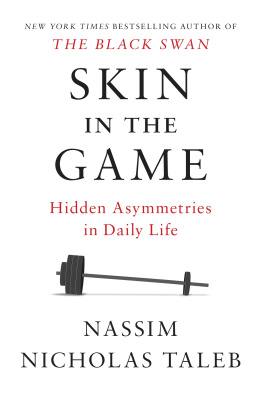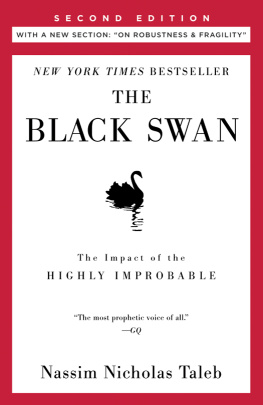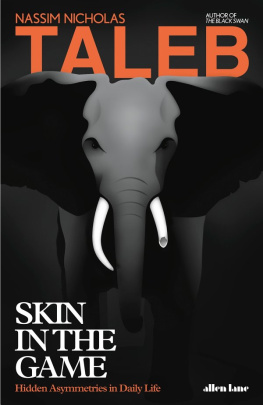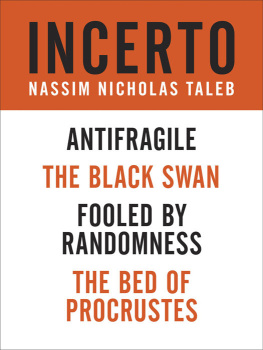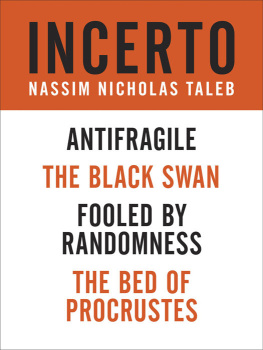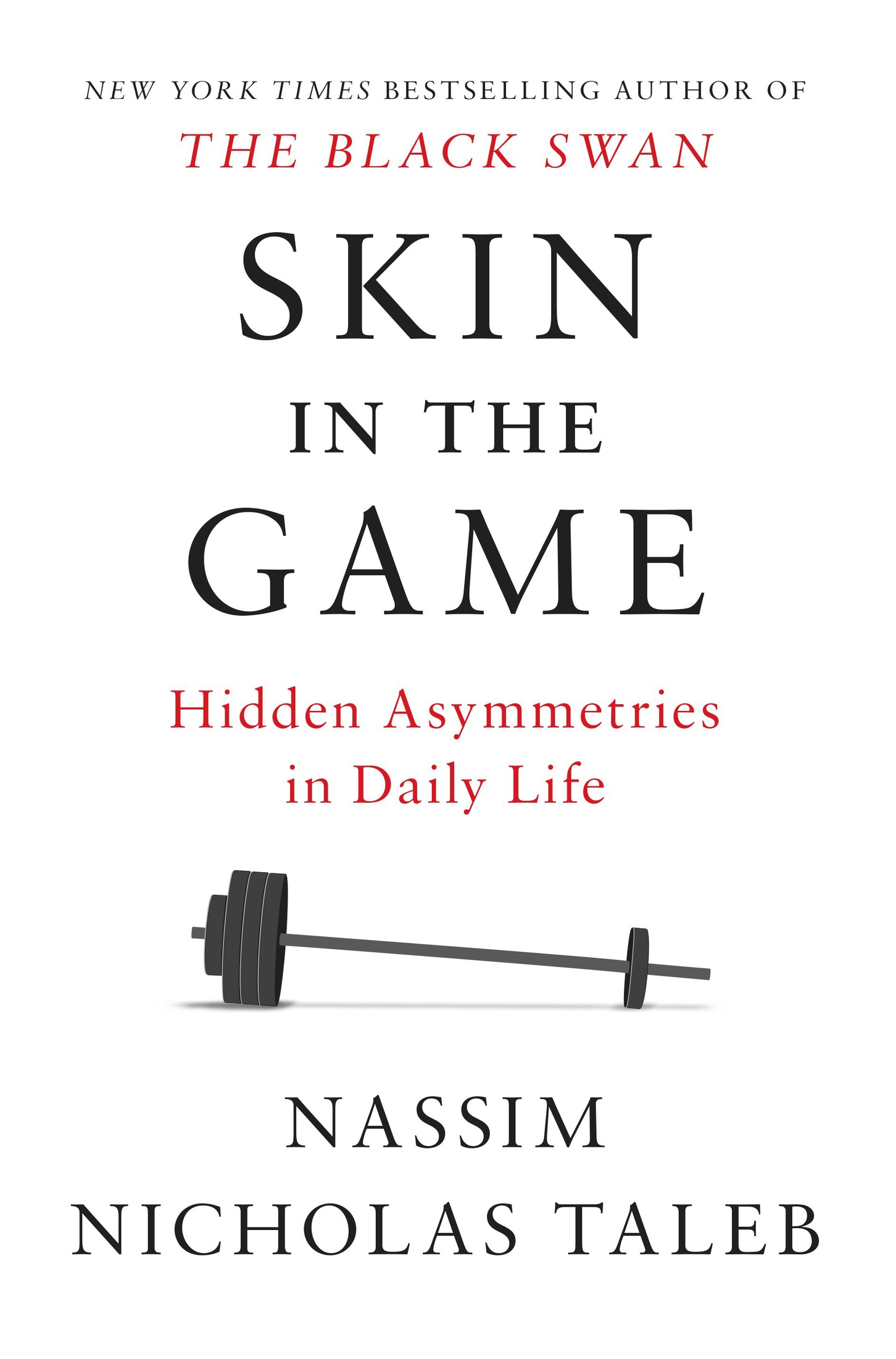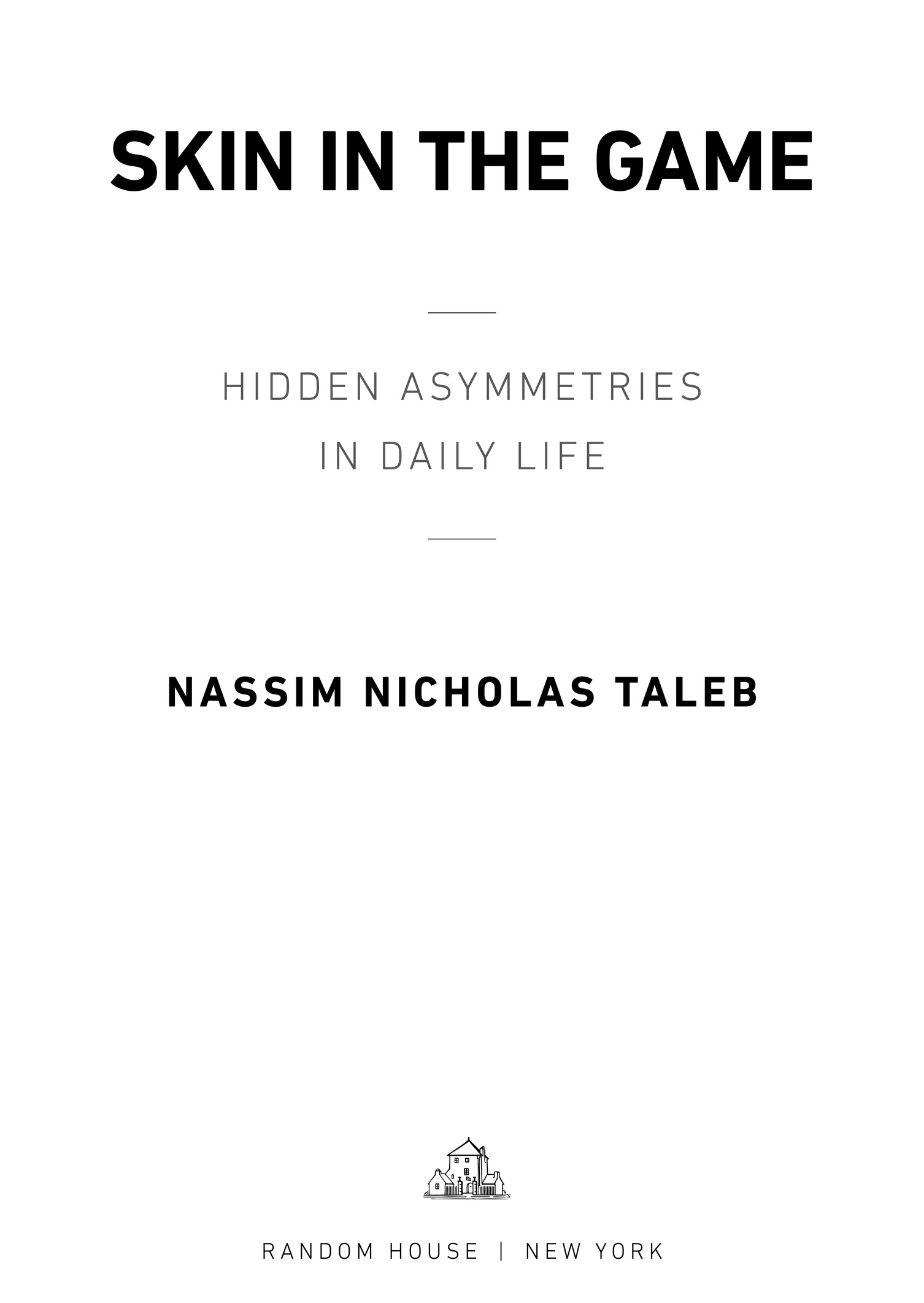Nassim Nicholas Taleb - Skin in the Game: Hidden Asymmetries in Daily Life
Here you can read online Nassim Nicholas Taleb - Skin in the Game: Hidden Asymmetries in Daily Life full text of the book (entire story) in english for free. Download pdf and epub, get meaning, cover and reviews about this ebook. year: 2018, publisher: Random House, genre: Politics. Description of the work, (preface) as well as reviews are available. Best literature library LitArk.com created for fans of good reading and offers a wide selection of genres:
Romance novel
Science fiction
Adventure
Detective
Science
History
Home and family
Prose
Art
Politics
Computer
Non-fiction
Religion
Business
Children
Humor
Choose a favorite category and find really read worthwhile books. Enjoy immersion in the world of imagination, feel the emotions of the characters or learn something new for yourself, make an fascinating discovery.

- Book:Skin in the Game: Hidden Asymmetries in Daily Life
- Author:
- Publisher:Random House
- Genre:
- Year:2018
- Rating:5 / 5
- Favourites:Add to favourites
- Your mark:
Skin in the Game: Hidden Asymmetries in Daily Life: summary, description and annotation
We offer to read an annotation, description, summary or preface (depends on what the author of the book "Skin in the Game: Hidden Asymmetries in Daily Life" wrote himself). If you haven't found the necessary information about the book — write in the comments, we will try to find it.
In his most provocative and practical book yet, one of the foremost thinkers of our time redefines what it means to understand the world, succeed in a profession, contribute to a fair and just society, detect nonsense, and influence others. Citing examples ranging from Hammurabi to Seneca, Antaeus the Giant to Donald Trump, Nassim Nicholas Taleb shows how the willingness to accept ones own risks is an essential attribute of heroes, saints, and flourishing people in all walks of life.
As always both accessible and iconoclastic, Taleb challenges long-held beliefs about the values of those who spearhead military interventions, make financial investments, and propagate religious faiths. Among his insights:
For social justice, focus on symmetry and risk sharing. You cannot make profits and transfer the risks to others, as bankers and large corporations do. You cannot get rich without owning your own risk and paying for your own losses. Forcing skin in the game corrects this asymmetry better than thousands of laws and regulations.
Ethical rules arent universal. Youre part of a group larger than you, but its still smaller than humanity in general.
Minorities, not majorities, run the world. The world is not run by consensus but by stubborn minorities imposing their tastes and ethics on others.
You can be an intellectual yet still be an idiot. Educated philistines have been wrong on everything from Stalinism to Iraq to low-carb diets.
Beware of complicated solutions (that someone was paid to find). A simple barbell can build muscle better than expensive new machines.
True religion is commitment, not just faith. How much you believe in something is manifested only by what youre willing to risk for it.
The phrase skin in the game is one we have often heard but rarely stopped to truly dissect. It is the backbone of risk management, but its also an astonishingly rich worldview that, as Taleb shows in this book, applies to all aspects of our lives. As Taleb says, The symmetry of skin in the game is a simple rule thats necessary for fairness and justice, and the ultimate BS-buster, and Never trust anyone who doesnt have skin in the game. Without it, fools and crooks will benefit, and their mistakes will never come back to haunt them.
Nassim Nicholas Taleb: author's other books
Who wrote Skin in the Game: Hidden Asymmetries in Daily Life? Find out the surname, the name of the author of the book and a list of all author's works by series.

